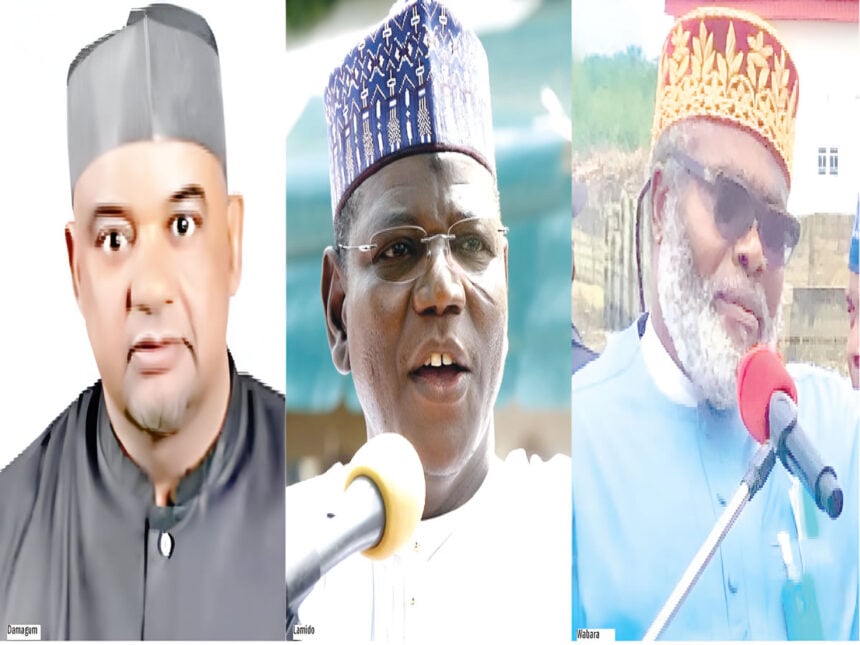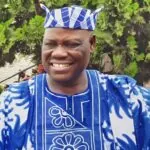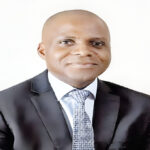Is the Peoples Democratic Party (PDP) about to embark on another wild goose chase following its promise to challenge the defection of its leaders to the All Progressives congress, KUNLE ODEREMi reports on the development and if there are precedents concerning such legal and constitutional battle.
THE crises in the nation’s leading opposition party, Peoples Democratic Party (PDP), appear to be bound. The structures of the party are increasingly becoming tenuous and susceptible by the day, due to the cause and effect of the intense struggle for its soul by major blocs and tendencies from within and without. One of the symptoms of the attendant haemorrhage is the rising wave of defections by some PDP main stakeholders to the ruling All Progressives Congress (APC).
Just weeks after the entire PDP family in Delta State moved to APC, the woe of the party was compounded by the exit of PDP bigwigs in Kebbi State to the ruling APC. The party is threatening fire and brimstone against those defectors. It has vowed to retrieve the mandate given to the affected defectors, among them, governor and lawmakers at both the National Assembly and state legislature.
But the table has only turned against the ‘largest party in Africa’ as PDP enjoyed the goodwill of defectors in the past. Under its them famed umbrella, hordes of stalwarts of opposition parties like the former Alliance for Democracy (AD), All Nigeria peoples (APP) and later All Nigeria peoples Party (ANPP) and other lesser parties whose members joined the PDP, found a haven, when the party savoured the aura and aroma of power. Similar threats were made by the affected parties, which accused the PDP of instigating the defections on the pretext of simmering internal contradictions and conflicts in the opposition parties.
Some PDP topnotches blamed the current precarious situation of the party on former President Olusegun Obasanjo. They recall that his regime introduced the reign of impunity into the party, fostering externally induced defections backed by judicial rascality. He was also accused of engendering a crisis in PDP when he worked for the opposition APC to defeat PDP in 2015, following which a staunch backer of PDP and President Goodluck Jonathan, the late Pa Edwin Clark, called for disciplinary action against the former president.
It is also on record that some governors of the PDP dumped the party for the APC without PDP dealing decisively procedurally with the breaches. The PDP did not rise beyond rhetoric when some governors elected on its platform, among them, Samuel Ortom of Benue State, Okezie Ikpeazu of Abia State, and Ifeanyi Ugwuanyi of Enugu State worked against the interest of their party, PDP, following the 2023 presidential primaries. Another instance was when the Abubakar Kawu Baraje-led new-PDP, a faction of the PDP party leaders, who withdrew their loyalty for the Bamanga Tukur-led leadership of the party’s National Working Committee (NWC) in 2013. The dissonance led to the defection of five PDP governors to the APC. There was the case of defected 11 senators and 37 members of the House of Representatives. In 2022, there was also the defection of former Governor Rabiu Musa Kwankwaso from the PDP to the New Nigeria Peoples Party (NNPP).
In 2006, 2007, 2018 and 2019, some governors also jumped ship. They included Saminu Turaki of Jigawa State; Isa Yuguda Yuguda of Bauch State, Samuel Ortom of Benue State, and Bello Matawalle of Zamfara State, respectively, all defected along with most lawmakers, government officials and members of their respective parties to other political parties. Thus, since the birth of the Fourth Republic in 1999, defections have become more pronounced with former Vice-President, Alhaji Atiku Abubakar dumping PDP for the then Action Congress Nigeria (ACN), and later to the APC before returning to the PDP between 2003 and 2019. In 2013, the President of the Senate, Speaker of the House of Representatives, 11 senators and 37 representatives all of who were elected on PDP ticket, defected to the APC.
At the state level, several governors, former governors, deputy governors, former deputy governors, members of the State Houses of Assembly, commissioners and important party members have also defected from one political party to the other. For instance, the sitting governors of Jigawa, Bauchi, Sokoto, Zamfara and Kebbi States defected from the opposition parties to the ruling party between 2006 and 2007. In most cases, sitting governors used to defect alongside with their deputies, commissioners, members of the State Houses of Assemblies, party men and women to the other political parties. For instance, Ikedi Ohakam, Theodore Orji, Rochas Okorocha, Achike Udenwa, Chibuike Amaechi, Chinwoke Mbadinuju, Alhaji Attahiru Bafarawa, Murtala Nyako, Rabiu Musa Kwankwaso, Abdulfatah Ahmed, Aliyu Wamako, Alhaji Ibrahim Saminu Turaki, Ibrahim Shekarau, Isa Yuguda, Alhaji Mahmud Shinkafi, Ibikunle Amosun, Segun Oni, George Akume, Segun Mimiko and Timpre Silva, all former governors, defected from their parties to other parties. PDP starwarts formed the bulwark of the defectors, with the party failing to retrieve its mandate from these defectors.
Who is to blame for PDP woes?
One of the former PDP governors, Gabriel Suswam, blamed the woes of the PDP on the shoulders of former President Obasanjo. According to him, the former leader cannot absolve himself of the failure to mentor the rest of the party faithful; on the right path to follow. He said: “If former President Olusegun Obasanjo had stayed and guided the younger ones, we wouldn’t have lost the 2015 election. But the leader of the party decided to unceremoniously leave the party (at) that time, leaving it with no single leadership.” The former Benue State governor also identified inept leadership for the hurricane that swept across the Delta PDP in favour of the APC, warning of the possible spread of the volcanic eruption to other PDP-controlled states. “The defections you see in Delta are bound to happen in other states. It is going to get worse because in any organisation that doesn’t have good leadership, there is no way you can expect better…
“I don’t blame Governor Okowa for the decision he took. If you’re the one who is not comfortable with the leadership of the party, you would take the same stand,” stated Mr Suswam. “There are many who have not left but have no single interest in the PDP any longer. They are just watching”
PDP’s threat to retrieve mandate
But the PDP said it is poised to challenge in court what it described as the trading away of its mandates by elected party members, including governors, to the APC. According to the PDP national leadership, the legal department of the party has been instructed to take the necessary steps on the defection of party leaders to the APC. PDP Acting National Chairman, Umar Damagum, specifically said the party’s legal adviser, Kamaldeen Ajibade, has been instructed to initiate a legal process against the Delta PDP defectors.
The decision was part of the resolutions reached at a recent meeting of PDP National Working Committee (NWC) presided over by Damagum, at the PDP national secretariat in Abuja. The party leadership condemned the mass defections as a betrayal of the people’s mandate and vowed to initiate legal and political steps to reclaim its lost ground. This is against the background of Section 109(1)(g) of the Nigerian Constitution (1999 as amended). It states the condition under which a lawmaker should relinquish his seat. The section provides that: “A member of a House of Assembly shall vacate his seat in the House if, being a person whose election to the House was sponsored by a political party, he becomes a member of another political party before the expiration of the period for which that House was elected: Provided that his membership of the latter political party is not as a result of a division in the political party of which he was previously a member, or of a merger of two or more political parties or factions by one of which he was previously sponsored.”
Section 109(1)(g) of the Nigerian Constitution (1999 as amended) states on the condition under which a lawmaker should relinquish his seat. The section provides that: “A member of a House of Assembly shall vacate his seat in the House if, being a person whose election to the House was sponsored by a political party, he becomes a member of another political party before the expiration of the period for which that House was elected: Provided that his membership of the latter political party is not as a result of a division in the political party of which he was previously a member, or of a merger of two or more political parties or factions by one of which he was previously sponsored.”
Interestingly, however, this threat by the PDP leadership was not strong enough to stop the three serving senators from Kebbi State: Adamu Aliero (Kebbi Central), Yahaya Abubakar Abdullahi (Kebbi North) and Garba Maidoki (Kebbi South), from dumping the party for the APC. The lawmakers, who were accompanied by the APC National Chairman, Dr. Abdullahi Ganduje, met with President Bola Tinubu at the Presidential Villa in Abuja on Friday before they announced their exit from the PDP. Others at the meeting were the Kebbi State governor, Dr. Nasir Idris; Sokoto State governor, Ahmad Aliyu, and Minister of Budget and Economic Planning, Senator Atiku Bagudu.
In Jigawa State, the Minority Leader in the state House of Assembly, Yahaya Zakari, joined the APC, while Senator Kawu Sumaila (Kano South) similarly left NNPP for the ruling party, citing misunderstanding and mistrust in his former party. Edo State House of Assembly Speaker Blessing Agbebaku, two other state lawmakers, 18 local government chairmen, 192 councillors and other party chieftains also dumped PDP for the APC. They were received by APC National Secretary, Senator Ajibola Basiru, who represented National Chairman, Dr. Abdullahi Ganduje; Governor Monday Okpebholo, his deputy Denis Idahosa, and Senator Adams Oshiomhole.speculations are rife that the immediate past governor of Abia State, Dr. Okezie Ikpeazu, has resigned his membership of the PDP may join the APC.
Can PDP make good its threat against defectors?
Many observers are skeptical about the success of the plan by PDP to sack those elected officials after dumping the party for the APC. This is because of the futile attempts made by different parties in the past on similar political twits. Some analysts described PDP’s fresh moves as another wild goose chase, while others claim the leading opposition is merely hallucinating, given the cacophonies within the party. However, the Labour Party, which has equally faced the bout of defections of its key leaders, hinted of a possibility, while denouncing the trend and threatened to invoke the relevant sections of the 1999 Constitution and the Electoral Act to retrieve its mandate. It particularly cited the case in Rivers State, when 27 members of the state House of Assembly reportedly defected from PDP to the APC in what the Labour Party described as disregard to constitutional provisions. This was before the Supreme Court declared that there was no evidence on the defection of the lawmakers. But the Rivers chairman of the Labour Party, Honourable Hilda Dokubo, claimed that Section 109. (1) (g) of the Nigeria constitution clearly states that, ‘A member of a House of Assembly shall vacate his seat in the House if being a person whose election to the House of Assembly was sponsored by a political party, he becomes a member of another political party before the expiration of the period for which that House was elected.’ He added: “Labour Party recalls that in 2022, a Federal High Court sitting in Abuja sacked 16 Ebonyi House of Assembly members for defection. The court held that the movement was in breach of Section 109(1)(g) of the 1999 Constitution as amended which provides that defector legislators are not allowed to retain their seats in the legislature.
“The same fate befell on 18 members of the Cross River House of Assembly and 2 members of the House of Representatives who were asked to vacate their seats for defecting from their party last year. The Labour Party can also vividly recall that in 2012, our member representing Akure North/Akure South Federal Constituency defected to another party. This case lingered until the Supreme Court in 2022 ordered him to immediately vacate his seat following his defection from the Labour Party. The Court’s unanimous judgment held that the lawmaker who decamped from the Labour Party to another party was constitutionally unfit to retain his seat as a federal lawmaker in the federal House of Representatives. Though the case aforementioned was slow in coming but the fact that the apex Court did justice to the matter with a proper interpretation of the law is enough for the political class to be aware that it can no longer take both the electorates and party that sponsored them for elections for a ride.”
However, two leaders of the PDP, who craved to remain anonymous, blamed the situation in the party on ego and external intrusion into the affairs of the PDP. Both leaders accused the APC federal administration of instigating the crisis in the former ruling party. While one of the leaders believed that those he alleged are in the corridors of power would eventually burn their fingers, the other PDP stalwart said the party would overcome its current challenges, including the meddlesomeness of the authorities.
Similarly, former minister and founding leader of PDP, Sule Lamido and the national publicity secretary, Debo Ologunagba, said the crisis in the party is largely externally induced. They are optimistic that the storm would soon be over, given the resilience and spirit of party faithful across the country.
READ ALSO: PDP set to drag defectors to court






